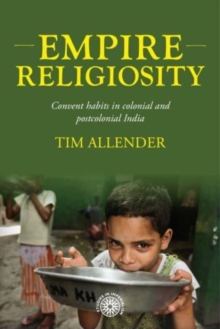
Martial races : The military, race and masculinity in British imperial culture, 1857-1914 PDF
by Heather Streets
Part of the Studies in Imperialism series
Description
This book explores how and why Scottish Highlanders, Punjabi Sikhs, and Nepalese Gurkhas became identified as the British Empire’s fiercest, most manly soldiers in nineteenth century discourse.
As ‘martial races’ these men were believed to possess a biological or cultural disposition to the racial and masculine qualities necessary for the arts of war. Because of this, they were used as icons to promote recruitment in British and Indian armies - a phenomenon with important social and political effects in India, in Britain, and in the armies of the Empire.
Martial Races bridges regional studies of South Asia and Britain while straddling the fields of racial theory, masculinity, imperialism, identity politics, and military studies.
Of particular importance is the way it exposes the historical instability of racial categories based on colour and its insistence that historically specific ideologies of masculinity helped form the logic of imperial defence, thus wedding gender theory with military studies in unique ways.
Moreover, Martial Races challenges the marginalisation of the British Army in histories of Victorian popular culture, and demonstrates the army’s enduring impact on the regional cultures of the Highlands, the Punjab and Nepal. This unique study will make fascinating reading for higher level students and experts in imperial history, military history and gender history. -- .
Information
-
Download - Immediately Available
- Format:PDF
- Pages:256 pages
- Publisher:Manchester University Press
- Publication Date:01/03/2017
- Category:
- ISBN:9781847793942
Other Formats
- Paperback / softback from £16.95
Information
-
Download - Immediately Available
- Format:PDF
- Pages:256 pages
- Publisher:Manchester University Press
- Publication Date:01/03/2017
- Category:
- ISBN:9781847793942










